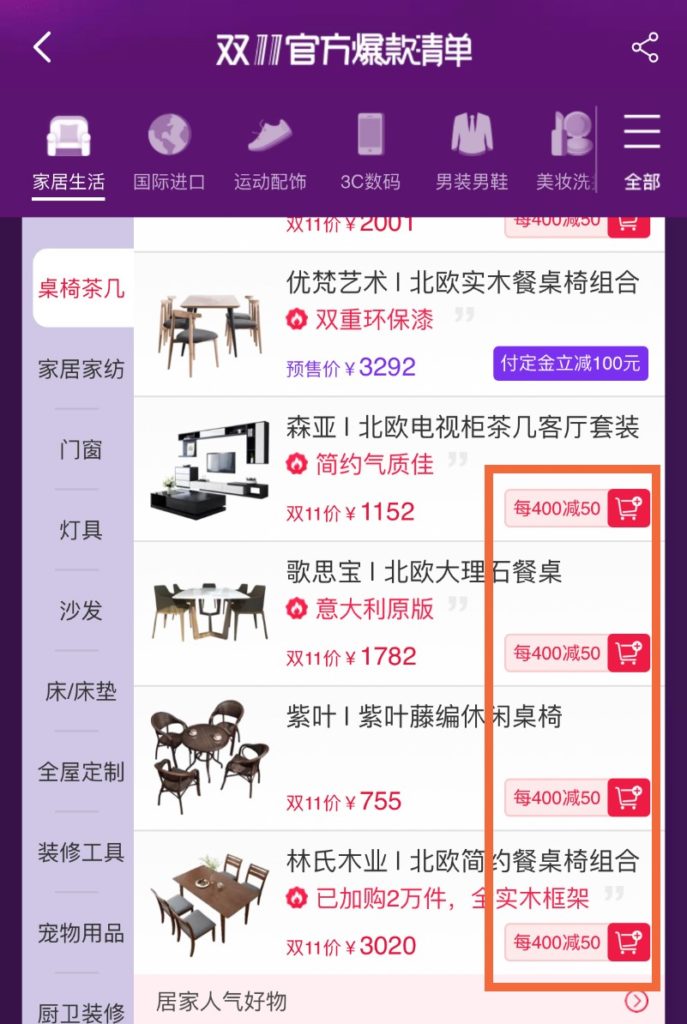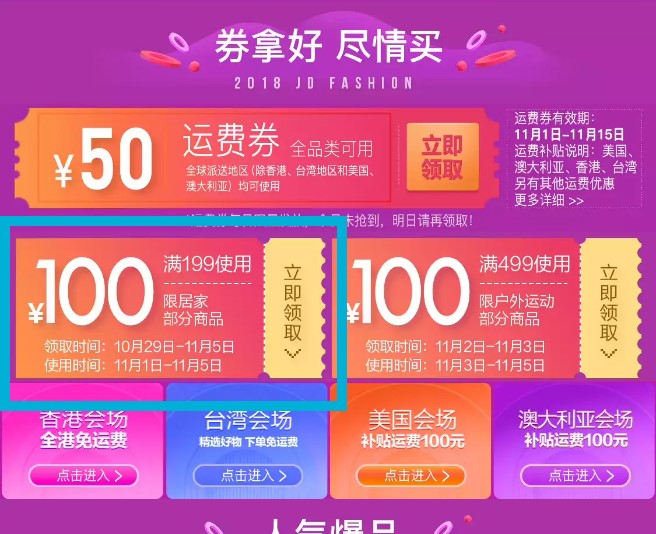
![]() Insights
Insights
International
Singles’ Day is an important event for any company looking to target China. In this blog post, we explore what Singles’ Day is, the opportunity for UK-based businesses, and what should be considered before targeting the event.
The day was originally created by students in the 1990s specifically for single people. The event occurs every year on 11th November, which is significant as the four ones in the date (11/11) represent single people. More recently, Alibaba transformed the day into one of the biggest discount sales events in the world. The event is now nearly four times larger than Black Friday and Cyber Monday. Last year, shoppers spent more than $25bn, which is more than in any previous year.
Chinese shoppers are not afraid to shop with international companies, with 74% of Chinese online shoppers having already purchased cross-border. In fact, in 2017, more than 130 UK brands took part in Singles’ Day through Alibaba’s Tmall, including Topshop, New Look and Burberry.
Alibaba’s Head of International Business Development, Mei Chen, said: “There is huge demand from Chinese consumers for foreign goods, especially UK brands, which are associated with high quality, heritage, and are at the forefront of fashion.”
There is a big opportunity for Western brands in China. 82% of Chinese consumers believe Western brands are as desirable as ever. This demand for luxury goods from Western countries is partly driven by the amount of counterfeit goods on sale in China. If customers are looking to buy genuine products, they tend to place more in trust Western companies.
When targeting any new market online, you need to decide whether you sell on marketplaces, direct via your own website or a mixture of both.
In China, marketplaces rule the roost with 85% of online sales taking place through marketplaces. However, it can be difficult to compete via marketplaces if you are not able to compete on price, particularly on Singles’ Day. They also set strict criteria you need to meet before you can begin to sell on them. If you choose to sell via marketplaces, it is worth exploring all options rather than just Alibaba’s Tmall, as JD.com has now also become a key competitor. Both have cross-border platforms, called Tmall Global and JD Worldwide respectively.
Social commerce, where online purchases can be made directly through social media, is much bigger in China than in Europe. Pinduoduo is a new online shopping platform that rewards users for shopping in groups by offering discounts. Since July 2017, it’s been China’s third most popular shopping app and could be a useful channel to consider for Singles’ Day.
If you choose to sell direct through your own site, there are many cultural differences to consider that may impact on your conversion rates. For example, Union Pay, Alipay and WeChat Pay are all popular payment methods to consider adding to your website for China. Ensuring you have these payment options is crucial to minimising basket abandonment rates and maximising conversions.
The style of Chinese websites is also very different to English websites. Busy and cluttered pages are preferred over the clean, minimal styles we prefer in Europe. The culture in China is very different from other cultures in terms of the interpretation of certain colours, imagery or numbers, which can influence conversion rates. For example, whereas 13 may be an unlucky number in this country, the number 4 is seen as unlucky in China as it sounds very similar to death.
Whichever way you choose to sell, translating your product listings and descriptions is crucial to engaging with the Chinese market. Depending on where you are targeting, you may need to translate into Simplified or Traditional Chinese. If you are looking to target mainland China, you will want to translate your website or product listings into Simplified Chinese, whereas Traditional Chinese is used for Hong Kong and Taiwan. As well as translation, ensuring your products are visible online is key, regardless of channel. This may take the form of search engine optimisation or paid search, depending on the channels you use and competition for visibility.
Chinese customers love a bargain, which is partly what makes Singles’ Day such a big event. Discounts in China differ slightly to those in the UK. Companies don’t usually offer percentage discounts, instead discounts tend to be money off when you spend a certain amount. For example, spend RMB 200 and get RMB 30 off.
Here is an example from the Tmall app. The discount is displayed as RMB 50 off for every RMB 400 spent

Here is another example from JD.com. Here, the discounts are displayed as vouchers, i.e. get RMB 100 off when you spend up to RMB 199 on home products.
If you do decide to sell through a marketplace, it’s important to bear in mind that you may have to follow discounting rules set up by the marketplace itself.

There are many legal requirements UK businesses need to consider when shipping goods to Chinese customers, such as meeting local market product labelling regulations, and being aware of local taxes and import duties (for example, Chinese customers pay import taxes when purchasing products from abroad).
Different industries may also require specific certifications. For some manufactured goods, a China Compulsory Certification (CCC) may be needed. Click here for a list from China’s National Certification and Accreditation Administration (CNCA) of products that need a CCC.
Sign up now to receive updates on the latest international marketing trendsSign up now

![]() Insights
Insights

![]() Insights
Insights

![]() Insights
Insights